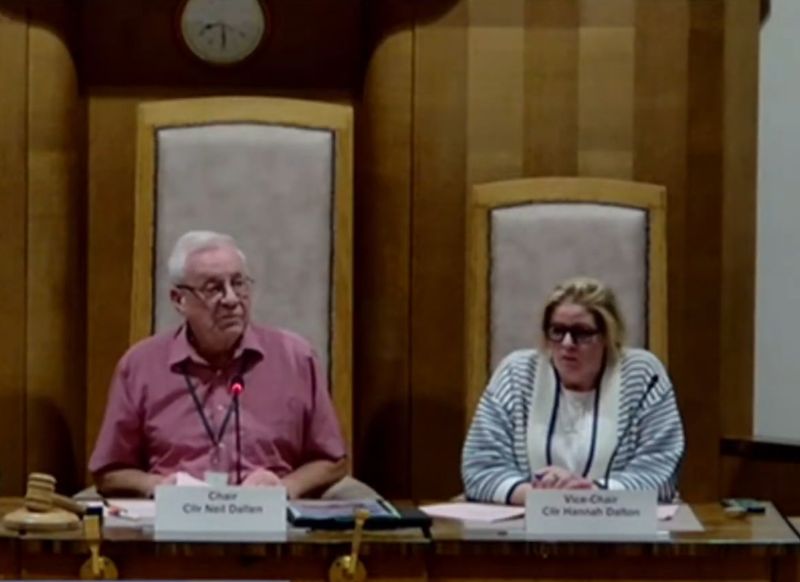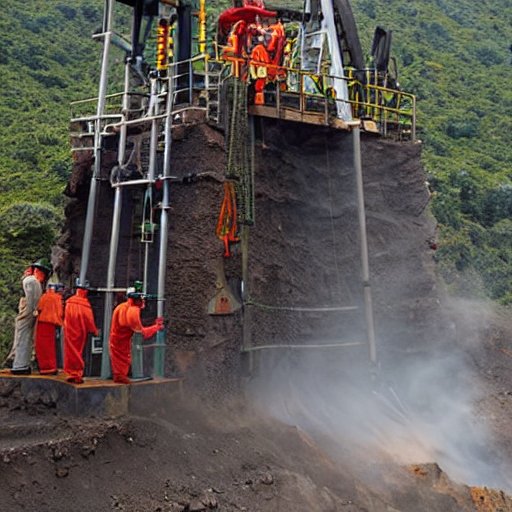Drills in the Hills lawful
Oil drilling near the Surrey Hills can proceed after the Court of Appeal dismissed a legal challenge to stop fossil fuel extraction from Dunsfold.
Climate emergency campaigners are still hopeful that the fight is not over – despite running out of road as far as court challenges are concerned.
UK Oil and Gas (UKOG) originally applied for planning permission to sink exploratory wells into land next to the Surrey Hills Area of Outstanding Natural Beauty (AONB) in 2020. The plans were refused by Surrey County Council but overturned by the Secretary of State the following year.
The legal labyrinth continued when a further appeal, launched by Waverley Borough Council and Protect Dunsfold, won the right to a Judicial Review in March 2023.
When this failed to overturn the decision, Protect Dunsfold applied for permission to appeal the findings. On Tuesday, January 9, a judge found they had no chance of the decision being changed and refused them the right to carry on appealing through the courts.
Oil firm UKOG hailed the decision as being “fully in keeping with the government’s hydrogen, energy security and net zero strategies”.
Its chief executive Stephen Sanderson said: “We are pleased that Lord Justice Stuart-Smith has once again dismissed the legal challenge to our Loxley project and has confirmed that its planning consent is entirely lawful, as the company and its counsel has maintained. We believe that a successful project will be beneficial to local and national level energy and economic interests and is fully in keeping with the government’s Hydrogen, Energy Security and Net Zero strategies.”
Law firm Leigh Day represented the campaign group. Their solicitor Ricardo Gama, said: “Protect Dunsfold are extremely disappointed by the Court of Appeal’s decision not to allow their appeal to go ahead. Their appeal would have tested whether a government minister was right to grant planning permission for gas exploration in Dunsfold when on the very same day he refused planning permission for gas exploration in Ellesmere Port because of the amount of greenhouse gas that would be emitted.
They say that that decision makes a mockery of the planning system because Ellesmere Port would involve less greenhouse gas emissions than Dunsfold.
Though defeated in court, if may not be the end of the battle as the some of the access land surrounding the site is owned by Waverley Borough Council and any moves to make it wider – in order to accommodate large vehicles needed to drill and transport oil could need council permission.
Waverley Borough Council has consistently expressed opposition to plans for oil and gas exploration at Loxley Well – which is home to Red Listed birds and other protected species.
The council has also said drilling at the site would have “disastrous consequences for the community, local wildlife and the wider landscape”.
Councillor Steve Williams, Waverley Borough Council portfolio holder for environment and sustainability, said: “At every stage in the long and tortured history of this planning application, local people have demonstrated their overwhelming opposition to any exploration for hydrocarbons at Dunsfold. If drilling goes ahead there will be damaging impacts on the landscape, wildlife, local businesses and residents, while nothing to the local economy.
“More importantly, it simply kicks the can of the climate emergency further down the road. We are living through a time of unprecedented climate impacts and need an immediate shift in national policy away from fossil fuels. We are either serious about addressing global heating, or we’re not.”
Councillor Paul Follows, Leader of Waverley Borough Council, said: “Onshore extraction of fossil fuels is totally incompatible with the Climate Emergency declared by Waverley Borough Council, Surrey County Council, and our national government. The UK needs to rapidly increase our investment in renewables, where we are in danger of losing our position as genuine world leaders.
“We should focus on energy generation by cost effective and sustainable methods such as solar and offshore wind, and stop ripping up the Surrey Hills in pursuit of oil and gas. The judgement today is bad for local communities, bad for the local environment, very bad for the planet and sends a message to future generations that we simply don’t care about them.”
Image – illustration only
Related reports:
Oiling the wheels of justice on Surrey Hills
Surrey MPs oppose each other on drills in the hills
Future of the Planet in Surrey hands?















